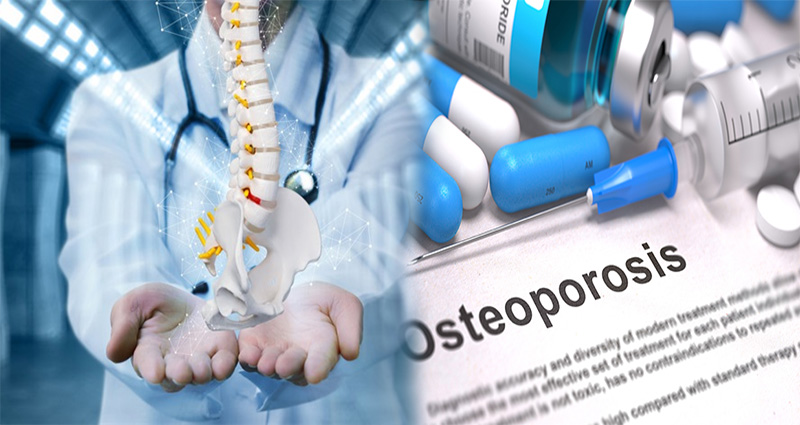Osteoporosis is a serious disease that affects millions of Americans. The condition causes bones to become weak and fragile, increasing the risk of fractures and other complications. This can lead to pain and loss of mobility for patients, as well as higher healthcare costs for both patients and insurance providers. There are several medications on the market that help treat osteoporosis, but what many people don’t know is these drugs come with some serious side effects — including permanent tooth damage! In this article we’ll talk about two common osteoporosis drugs: bisphosphonates and denosumab. We’ll also discuss how these medications work and what you need to know before taking them or any other medication prescribed by your doctor.
The two most common drugs used to treat osteoporosis are bisphosphonates and denosumab.
Osteoporosis is a disease that causes bones to become thin and brittle. The most common type of osteoporosis is called postmenopausal osteoporosis because it affects most women after menopause.
Bisphosphonates are a class of drugs used to treat osteoporosis in women who have been through menopause and also in men who have had their testicles removed (castrated). Denosumab is another type of medication used to treat bone loss due to osteoporosis or cancer treatment, but it’s not approved for use as often as bisphosphonates are.
Both types of medications have side effects like stomach pain or diarrhea, which can be managed by taking them with food or milk products that contain calcium–but they also carry risks for some people:
Bisphosphonates are often prescribed for women who have been diagnosed with postmenopausal osteoporosis.
Bisphosphonates are often prescribed for women who have been diagnosed with postmenopausal osteoporosis. They’re not recommended for people with liver disease, kidney disease, or a history of stomach ulcers.
The most common side effects include nausea and vomiting; bone pain in the arms or legs; muscle weakness (especially in the hips); headache; dizziness; diarrhea; constipation; bloating or gas–and these are just some of them! If you experience any of these symptoms after taking this drug, call your doctor right away so he can help you find an alternative treatment plan that works better for you.
Denosumab is used to treat postmenopausal women who have low bone mineral density.
Denosumab is a monoclonal antibody that works by binding to RANKL, a protein that causes bone loss. It is used to treat osteoporosis in postmenopausal women and prevent fractures.
The side effects of these medications include muscle pain, stomach pain, and increased risk of fractures.
The most common side effects of these medications include muscle pain, stomach pain and increased risk of fractures. These side effects may be more common with denosumab than with bisphosphonates.
If you are experiencing any of these symptoms it is important that you talk to your doctor about them immediately so they can help determine if there is another treatment option available for you or if there is something else going on in your body that requires additional medical attention.
Both medications can also cause permanent tooth damage if you have gum disease or have had a tooth extraction within the last six months.
You may also want to consider the following:
- Both medications can also cause permanent tooth damage if you have gum disease or have had a tooth extraction within the last six months.
- You should not take these drugs if you are pregnant, breastfeeding, or planning to become pregnant while using them.
Osteoporosis is a serious disease that needs to be taken seriously by patients, doctors, and researchers.
Osteoporosis is a serious disease that needs to be taken seriously by patients, doctors and researchers. It’s a silent disease that can cause pain, disability and even death if left untreated. Osteoporosis affects millions of people every year. It’s most common in postmenopausal women but also affects men over the age of 50 who have low testosterone levels or have not been taking calcium supplements regularly during their lifetime.
Osteoporosis occurs when your bones lose mass and become fragile because they don’t have enough minerals like calcium; this makes them more likely to break more easily than healthy bones would do under similar circumstances (such as from falling down). If you break one part of your skeleton due to osteoporosis then there’s always a risk that other parts will break too – which could lead up until total loss of mobility!
Osteoporosis is a serious disease that needs to be taken seriously by patients, doctors, and researchers. The two most common drugs used to treat osteoporosis are bisphosphonates and denosumab. Bisphosphonates are often prescribed for women who have been diagnosed with postmenopausal osteoporosis while denosumab is used to treat postmenopausal women who have low bone mineral density. Both medications can cause permanent tooth damage if you have gum disease or have had a tooth extraction within the last six months









